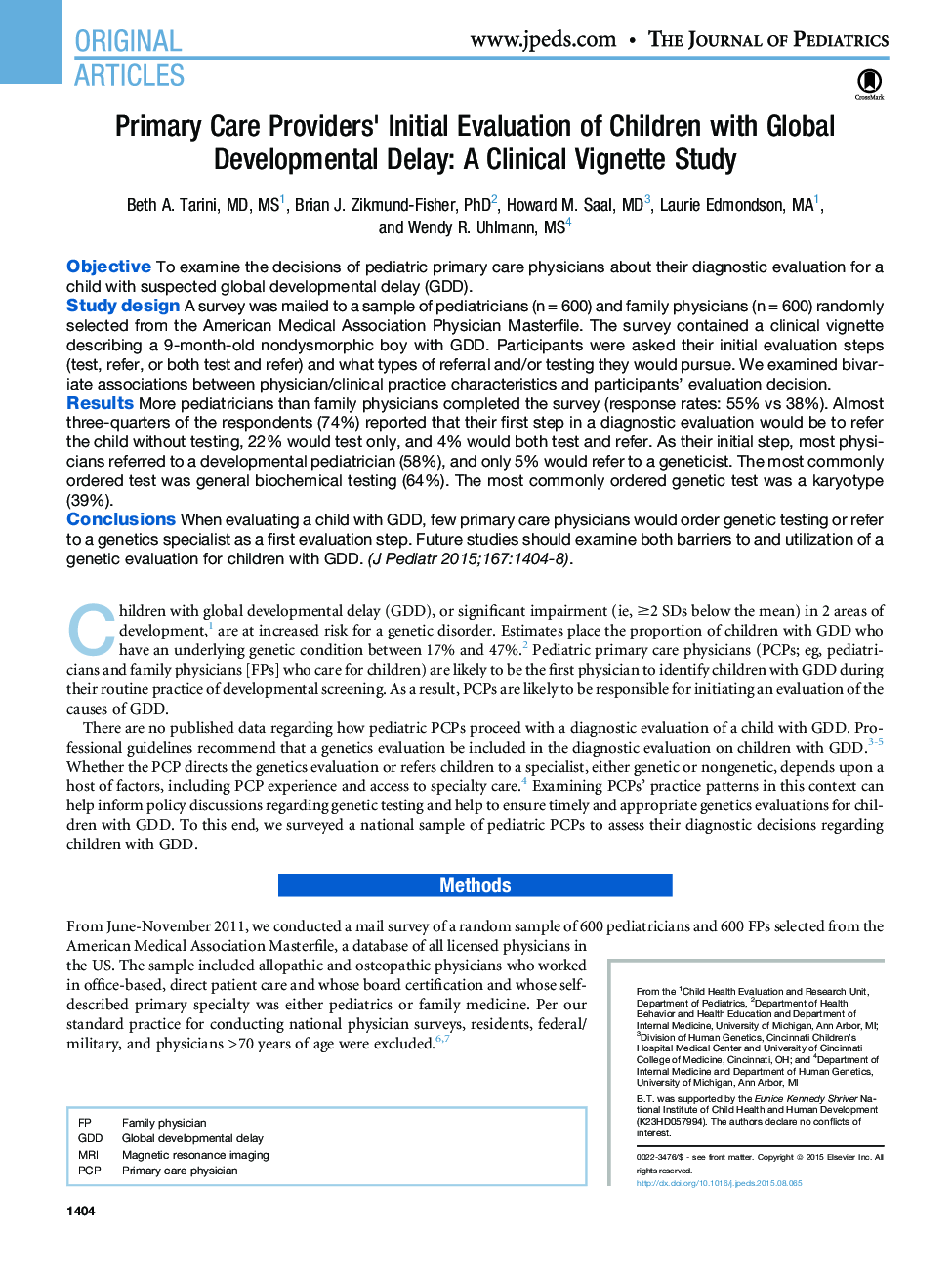| Article ID | Journal | Published Year | Pages | File Type |
|---|---|---|---|---|
| 6219766 | The Journal of Pediatrics | 2015 | 6 Pages |
ObjectiveTo examine the decisions of pediatric primary care physicians about their diagnostic evaluation for a child with suspected global developmental delay (GDD).Study designA survey was mailed to a sample of pediatricians (n = 600) and family physicians (n = 600) randomly selected from the American Medical Association Physician Masterfile. The survey contained a clinical vignette describing a 9-month-old nondysmorphic boy with GDD. Participants were asked their initial evaluation steps (test, refer, or both test and refer) and what types of referral and/or testing they would pursue. We examined bivariate associations between physician/clinical practice characteristics and participants' evaluation decision.ResultsMore pediatricians than family physicians completed the survey (response rates: 55% vs 38%). Almost three-quarters of the respondents (74%) reported that their first step in a diagnostic evaluation would be to refer the child without testing, 22% would test only, and 4% would both test and refer. As their initial step, most physicians referred to a developmental pediatrician (58%), and only 5% would refer to a geneticist. The most commonly ordered test was general biochemical testing (64%). The most commonly ordered genetic test was a karyotype (39%).ConclusionsWhen evaluating a child with GDD, few primary care physicians would order genetic testing or refer to a genetics specialist as a first evaluation step. Future studies should examine both barriers to and utilization of a genetic evaluation for children with GDD.
